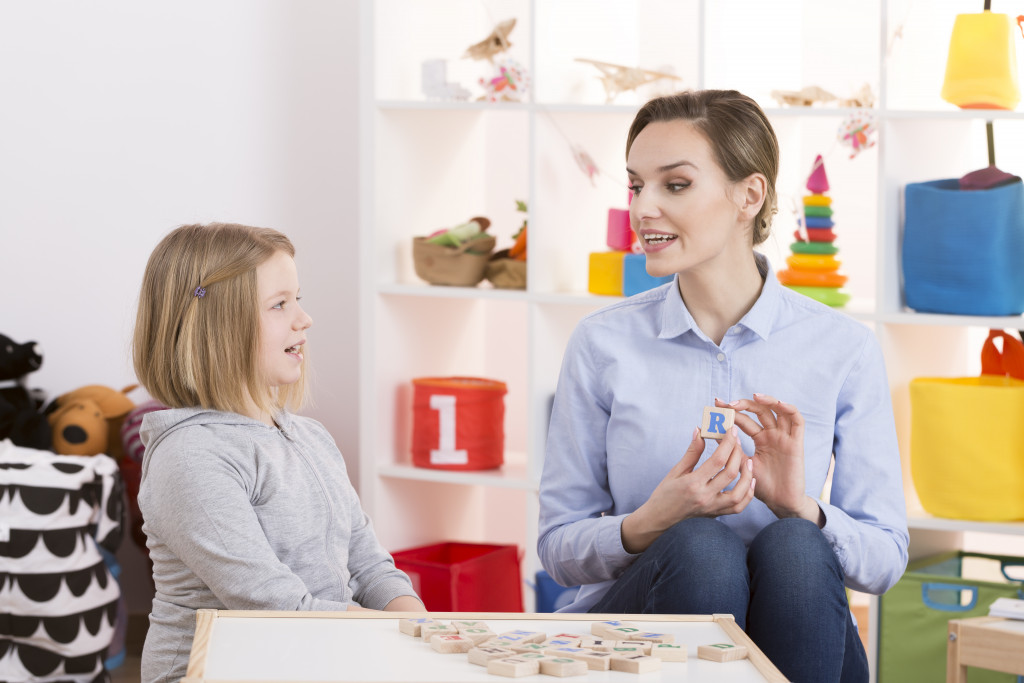The development of kids in information processing, conceptualizing, perception skills, language, and other fundamental human functions are known as cognitive abilities. Cognitive skills are tagged with development. And the reason is a difference in everyone’s brain size and efficiency. Cognitive development is a process that can still be ongoing as an adult. Learning to adapt to various aspects of life and getting used to it efficiently is a process that lasts for the whole lifetime. Understanding logical relation around the environment and understanding the relativity of cause and effect is the goal of good cognitive development.
The four stages of cognitive development- reasoning, intelligence, language, and memory, generally starts when the child is 18 months of age. Cognitive development is related more to suitable learning facilitation. However, it also includes some genetic traits. It is backed by science that some essential cognitive functions, such as speech and perception, can have inherited qualities from the parents.
The stages of cognitive development can only be passed in steps, and some functions may stay disabled if a child is having trouble adapting to some essential functions as an infant. Every child has their speed of making it through the stages. As a parent, you must understand the needs for proper cognitive development and make sure you take clever steps to help your child’s mental growth. Here are a few easy ways to aid cognitive development in your kid.
Singing Along With the Kid
Memory and word recognition are the most basic functions that need to be developed in a child for them to lead a normal life. And if you’re aware of the magic of music, you can make your child more intelligent through simple sing-along sessions. Words repeated in a musical and fun way slowly encourage the child to recognize the song’s words. See what the child likes and play those rhymes on the car ride to the daycare or home. The child will start to sing along eventually and recognize the words in everyday sweet talks.
Identifying Sounds of Animals and Objects
Perception and identification of sounds is an essential factor of cognitive functioning. Understanding everyday sounds and knowing the logic behind them must be induced in kids through practice. Use the kids’ general curiosity and let them listen to the surrounding sounds such as the barking of a dog, the chirping sound of birds, thunder, pouring water, and car horns. The kid must understand the relation between sounds, their sources, and the general reaction to them.
Practicing Alphabets

Learning any language will require a person to get familiar with the alphabet first. It makes sure that the person understands the formation of words and can form sentences on their own. Practicing the alphabet with the alphabet song and playing alphabet puzzles can help the child grow their understanding.
Plastic injection molding provides a lot of molding clay options. Manufacturers produce them in different colors. Spread molded alphabets around the house in places where your child can reach without hazard. The basement would not be an excellent idea. Ask your child to find the alphabets individually, in an order. Stick the alphabet in order on a board or the fridge. Use a reward-based learning method, and you’ll find the child being enthusiastic about the game.
In later stages, increase the toughness of these puzzles. Simply ask the child to find an object that starts with an alphabet. If it is something edible, it can be more fun. Make them recognize the words and help them spell newer ones — two birds with one stone. Or you’d rather use apples with the kids. In case you’re into hand-eye coordination.
Practicing Counting Numbers
Understanding and working with numbers is a necessity for life. We come across numbers every day. Time, things, people, money, and all other things are made of numbers in the universe. So always keep reminding your child of numbers through everyday counting. It can be done in the simplest ways. The first calculator, the abacus, can be a great addition to cognition and learning. You can practice counting with shoes in the closet or by counting snacks, use your imagination, count red cars outside the ice-cream parlor, and make the kid count the blue ones. Teach them to tally the numbers and develop an understanding of greater and lesser numbers.
Cognition and necessary motor skills are appropriately developed when kids get regular practice through natural learning. Cognitive development is more a resulting factor of up-bringing than genetics. So make sure you lay the stones right.

